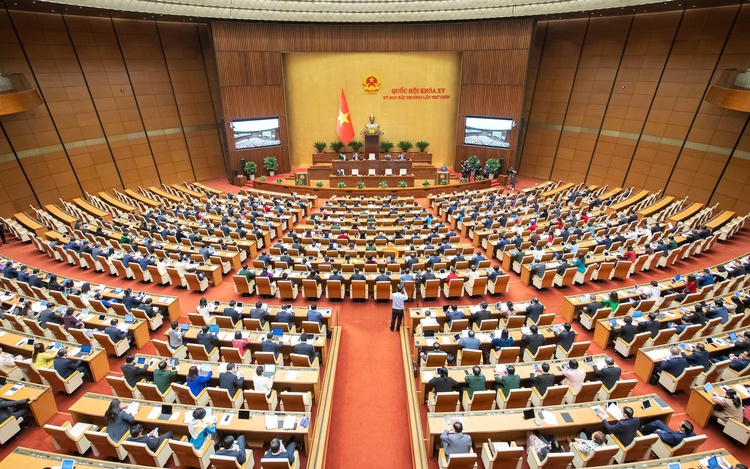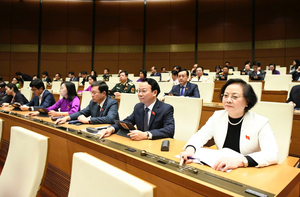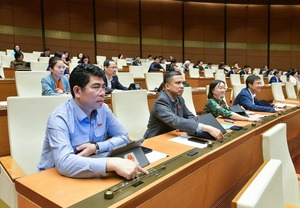
A general view of a Vietnam National Assembly session. Photo: Gia Han
The ninth session, divided into two phases from May 5 to 29 and June 11 to 30, is expected to run for over 37 working days, including some weekends.
Ahead of the opening ceremony, a delegation of Party and state leaders, along with NA delegates, laid wreaths and paid tribute to late President Ho Chi Minh at his mausoleum.
The opening session at 9:00 am was broadcast live on channels VTV1 of the Vietnam Television and VOV1 of Radio the Voice of Vietnam.
According to the event agenda, National Assembly Chairman Tran Thanh Man was scheduled to deliver his opening remarks at the session, which he earlier said holds particular importance.
Prime Minister Pham Minh Chinh followed with a report evaluating 2024’s socio-economic performance and outlining key developments in early 2025.
Chairman of the NA’s Economic and Financial Committee Phan Van Mai will present a review of the government’s report.
President of the Vietnam Fatherland Front Central Committee Do Van Chien will deliver a summary of citizens' and voters’ feedback.
Chairman of the NA Committee for People's Aspirations and Supervision Duong Thanh Binh will report on responses to citizens’ petitions from the previous session.
The Monday morning session also featured the presentation of two proposals: one seeking revisions to the 2013 Constitution and another proposing the establishment of a drafting committee.
Later in the afternoon, the NA is expected to vote on resolutions regarding the amendment and supplement of the 2013 Constitution and the establishment of the drafting committee.
During the ninth session, the NA is set to address 54 agenda items, including revisions to the 2013 Constitution, encompassing three resolutions on constitutional work.
Besides, 34 draft laws will be reviewed or approved, including amendments to the Penal Code, Law on Cadres and Civil Servants, Education Law, and Special Consumption Tax Law.
The Vietnamese legislature is expected to pass 11 resolutions, including those on supporting private economic development, piloting special policies for social housing, and tuition support.
It will also provide initial feedback on six draft laws, and deliberate on 14 matters related to socio-economic development, state budget, and other major issues, including the approval of a resolution on provincial-level administrative mergers.
Notably, the NA will decide on establishing a National Election Council and electing its chair; approving the list of vice chairs and members of the council; shortening the term of the current legislature in 2021-26; and setting the election date for the next NA and local People’s Councils for the 2026-31 period.




Max: 1500 characters
There are no comments yet. Be the first to comment.